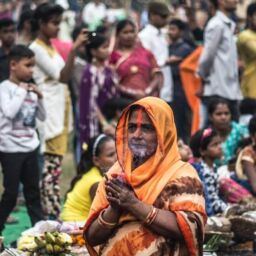Introduction
Secularism has been one of the cardinal principles of the Indian constitution. The term ‘secular’ was added to the Constitution of India in 1976 through the 42nd Constitutional Amendment Act. In the case of S.R. Bommai v. Union of India[1], the apex court held that all the religions of the state are equal in the eyes of law and the state cannot discriminate one from the other. Religion is considered to be a purely personal matter of an individual. The framers of the Indian constitution have kept a Uniform Civil Code(UCC)[2] under directive principles of state policies (DPSP) for the very same reason that one day it will be implemented by Indian legislatures and once for all the inequalities in personal laws will cease to exist. But even after decades of independence, the Indian legislatures failed to implement the Uniform Civil Code in India. But they did manage to implement an act that has the essence of UCC, that is the Special Marriage Act(SMA) which was implemented in 1954 by the parliament of India. The act solemnizes interfaith and inter-religious marriages between two individuals who are either citizens of India or Indian nationals who live abroad. When this act was enacted, there was a huge clamour and dissatisfaction among people, especially within the minority group. India with such diversity in terms of cultures and religion of people saw this act as a threat to their very religion and had a fear of losing the integrity of their culture. To stop the conversion of the religion of people only for marriage and other kinds of issues the enactment of the act was essential.
Similarities between the Special Marriage Act and Uniform Civil code
The framers of the constitution of India have promised the citizens of India to enact UCC so they shall work and fulfil the promise they made. The Britishers did not interfere in the personal matters of Indians such as triple talaq, polygamy, religion. The Indian legislature has to make a law that is secular and involves the religion of the minority community. The secular nature of both the UCC and the SMA is well known as they transcend all the religious boundaries. This means that in the SMA, there is no need to adhere to the personal laws of a particular religion just like the UCC which provides a uniform code applicable throughout the territory of India.
The SMA deals with the subject other than just marriage just like UCC that deals with not only marriages but also divorce, inheritance, adoption, separation, etc. One of the similarities is that just like SMA which provides validity to every single one of the marriages the legal status, unlike the personal laws which have disparity depending upon the disparity among religions. The UCC also seeks to enact its laws on the same line that of SMA in the whole territory of India. These similarities show that SMA is one of the very few acts in India which comes under the ambit of the UCC.
Differences between the Special Marriage Act and Uniform Civil code
The biggest disparity between the SMA and UCC is that the SMA is an optional code which means that it is people’s choice whether they want to marry outside their religion and not be governed by their laws. It depends upon them and their choice to make. Nobody can force them or punish them under the ambit of SMA. But if UCC is implemented it would not be an optional code. The code will govern and be enacted in the whole of the territory of India. Every person has to abide by the code. The personal laws will cease to exist and this mandatory nature of the code may give rise to dissatisfaction among the people followed by the turmoil in the state. The main reason for this code having mandatory nature is to avoid redundancy of the acts already there, in simple words if this code is made optional then people would still prefer their laws over the uniform civil code, the whole purpose behind enacting this code will go in vain.
Another important difference between the UCC and SMA can be the nature of the legislation that is “The UCC shall be the Substantive Law that tells or incorporates the rules, regulations, duties, obligations, code of conduct, causes of action which can be enforced by the law.”[3]“The SMA shall be the Procedural law that tells how marriages, divorces, or any other subject of that matter will be performed respectively.”[4]
The Special Marriage Act as the soul of the Uniform Civil code
The SMA legislation frees people from the conventional form of customs and gets away with the religious formalities of the personal laws. For example, if a Muslim man wants to marry a Hindu woman then the Hindu woman has to undergo a conversion of religion. But under SMA there is no such need. The party of both sides has to fulfil basic procedural guidelines such as mutual consent of both the parties, soundness of mind of both the party, registration of the marriage, etc. The mandatory registration of the marriage allows the government to keep a record of the marriage and in case of abuse or infringement of the rights of either party, adequate actions can be taken place. This is optional in personal laws which led to creating problems in the future. The marriage can take place between parties of two different religions as well as between parties of the same religion. It is depended upon the choice of the individuals whether want to govern by their laws or the SMA.
The need for legislation like the Special Marriage Act and Uniform Civil code
The need for legislation like the SMA and the UCC is associated with the problems in the personal laws of particular religions. Gender bias which is very evident in personal laws is the primary reason. In the subjects like inheritance of the property, marriage, custody of the children, maintenance of the spouse, etc. it is shown that women are less capable than men. The laws are inspired by the different religious customs but regardless of the religion most of the customs show gender inequality and discriminatory practices which continue to affect millions of women in India even today. With the implementation of the Special Marriage Act and Uniform Civil Code, there will be just one law uniformly enacted without gender bias or discriminatory practices in the whole territory of India.
Conclusion
After analyzing various aspects of both the legislation it can be concluded that having legislation like the special marriage act is not sufficient for implementing legislation like a uniform civil code. It needs a lot of discussions, debates, thought processes, and most importantly acceptance from the people of India. It is not easy to implement the uniform code in India considering how important religion and personal laws are for Indians but it is certainly possible if legislations like SMA are implemented though optional for the time being, it provides benefit in ways that are more helpful and non-discriminatory.
Author(s) Name: Anukriti Jain (Nirma University, Ahmedabad)
References:
[1] S.R. Bommai v. Union of India, [1994] AIR 1918,1994 SCC(3)1
[2] Article 44 of the Indian Constitiuion.
[3] Brijraj Deora, “Special Marriage Act (1954) as a Precursor of Uniform civil code” (2020) CNLU Lj (9) 234,241.
[4] Ibid.
















